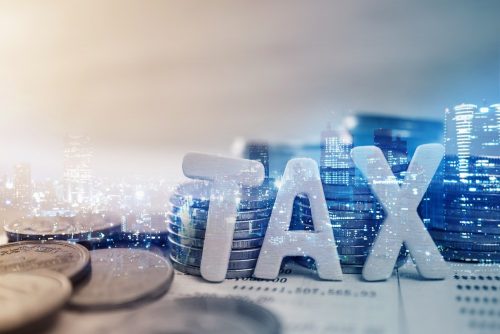
We are now halfway through 2021 and have seen the effects that the COVID-19 pandemic has had when it comes to taxes, but the good news is it’s actually better than what many people, as well as governments, had previously predicted.
While many expected our states to see a sharp decline in revenue thanks to the pandemic, it surprisingly turned out better than quite frankly expected. Likely because people were able to keep working (often remotely) and income taxes stayed pretty strong while sales taxes gravitated online so they weren’t as low as originally projected.
One of the areas that states are looking at is whether their approach is fair to local businesses when it comes to online businesses to make sure that the tax burden ends up being equally shared. So, for example, a state’s online apartment-sharing should pay taxes just like area hotels. States are also looking into other ways to reap revenue by taxing services like sports betting and cannabis consumption.
But overall, it’s likely we are going to see slightly less oversight than originally projected as a result of the pandemic to make sure states are still getting their due revenue. This includes distributing the tax burden equally between businesses that are local, online or national.
This is important because it allows both state and local governments to exhale a bit so to speak because there won’t be this intense crackdown as previously expected. But according to Kim Rueben (senior fellow and director of the state and local finance initiative at the Urban Institute) predicts that as the pandemic winds down, states will likely expand their focus to ensure that their local businesses are still doing okay.
Furthermore, when it comes to states’ taxes collecting their needed revenue, they will support those urban centers that have suffered the most this past year. So even though states won’t lower the taxes required in those areas that were struck the hardest, they can certainly freeze them, allowing them to make the most of what was a challenging year. Fortunately, as we see workers shift to a more hybrid work environment, it will drive the economy to thrive once again. This will be accomplished with both state and local governments who bring their workers back on board.
To help make this all work, federal stimulus programs help boost revenue to state and local governments. Businesses will need to work on their tax strategies taking into account this new, post-pandemic world. Even if companies move to a low-cost or low-tax area, they still might have additional costs for their workers who want to move to a bigger home to work remotely or send their children to private schools. In other instances, businesses might find that there is a reduced talent pool to choose from or insufficient infrastructure for education, health care, etc.
While our tax and stimulus situation in the United States is looking brighter than many had expected, the rest of the world may not necessarily prove as fortunate. Since many countries couldn’t raise the money they needed, they will likely resort to raising tax revenues, so if your business is located in one of those countries or you sell your goods overseas, you may have to deal with tax authorities. What does this mean for your business? You may be giving them access to business accounting records, digitizing your tax reporting for tax compliance and e-invoicing. You’ll definitely want to have your business’s compliance steps in place to avoid fines.
According to Diane Swonk, the chief economist at Top 10 Firm Grant Thornton, there are several things businesses should know if they are selling items internationally:
-Find out where and when you will be obligated to collect taxes, including a value-added tax (also known as a goods and services tax).
-Be registered with the right tax authority if your business does have a tax obligation.
-Be sure you know what is and isn’t taxable.
-Make sure you calculate the right amount of taxes owed, then collect and submit those taxes.
Having the right kind of support for your business to make sure you aren’t penalized is crucial as the world returns back to a new normal. Automating your system and seeking help from advisors can all help make your taxes more accurate and reliable. At Corporate Capital, Inc., we are a one-stop shop for creating corporations and LLCs across the U.S. Our team of licensed professionals and legal experts are here to help you. Reach out to our highly experienced business management team in Las Vegas, Nevada, by calling 855-371-0070 and find out what we can do for your company!
Article Source:
https://www.accountingtoday.com/news/taxes-and-the-pandemic-not-always-what-you-expect


 855-371-0070
855-371-0070